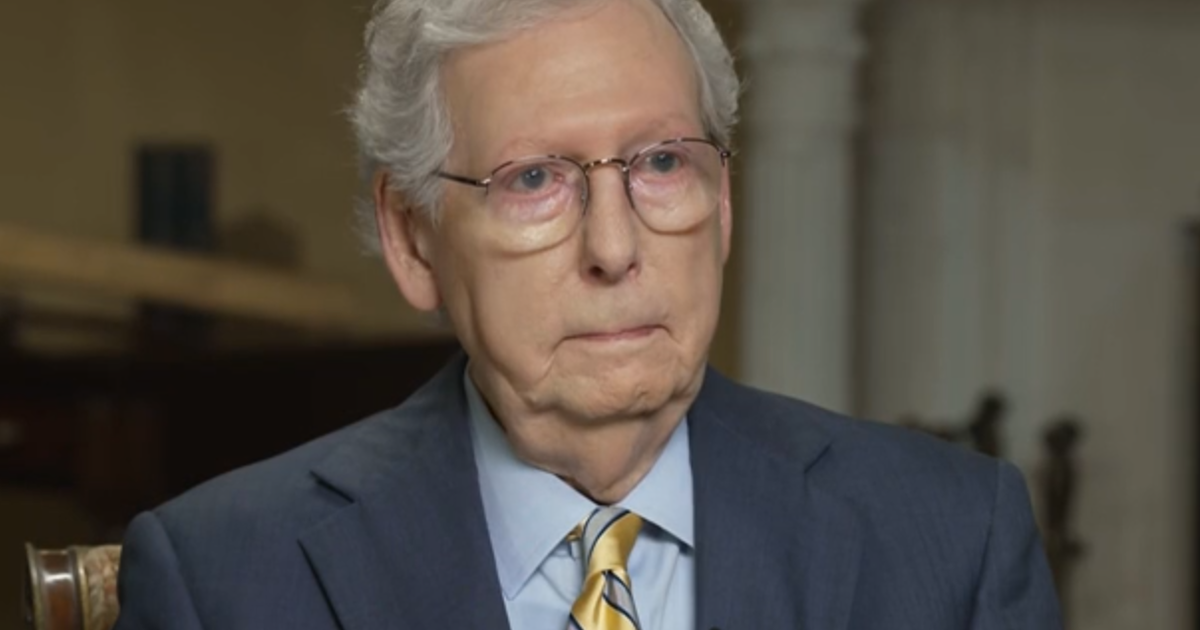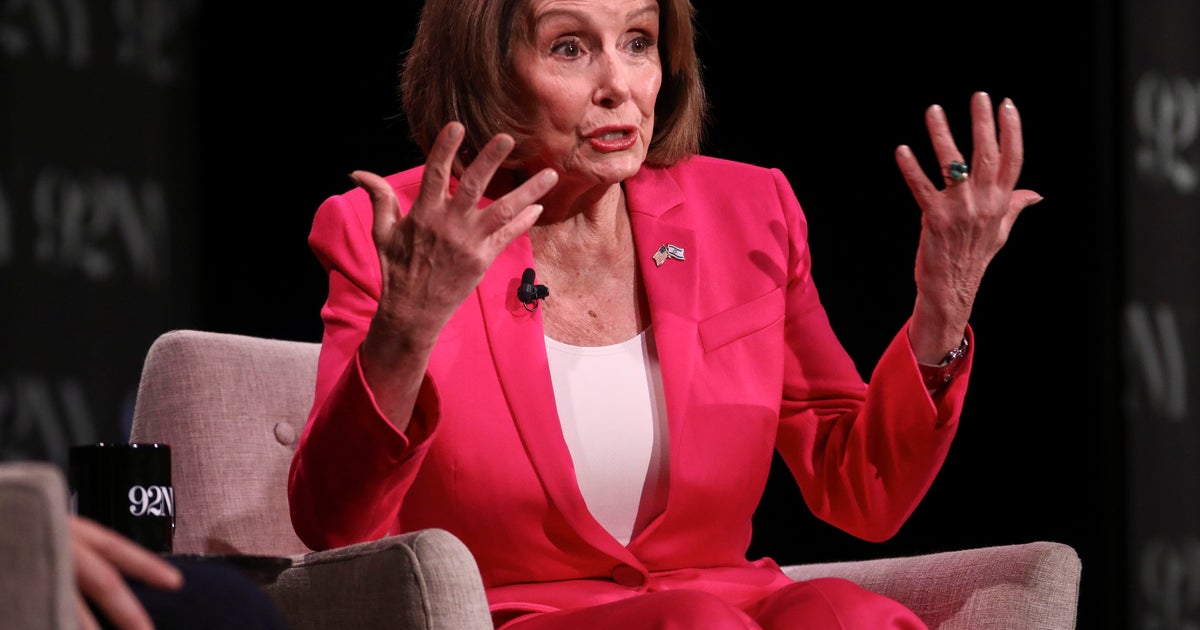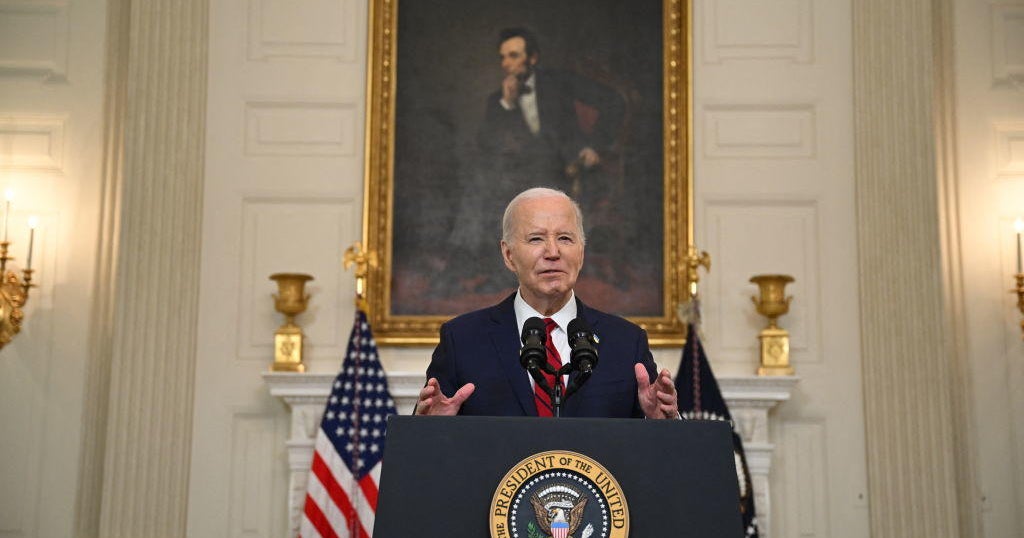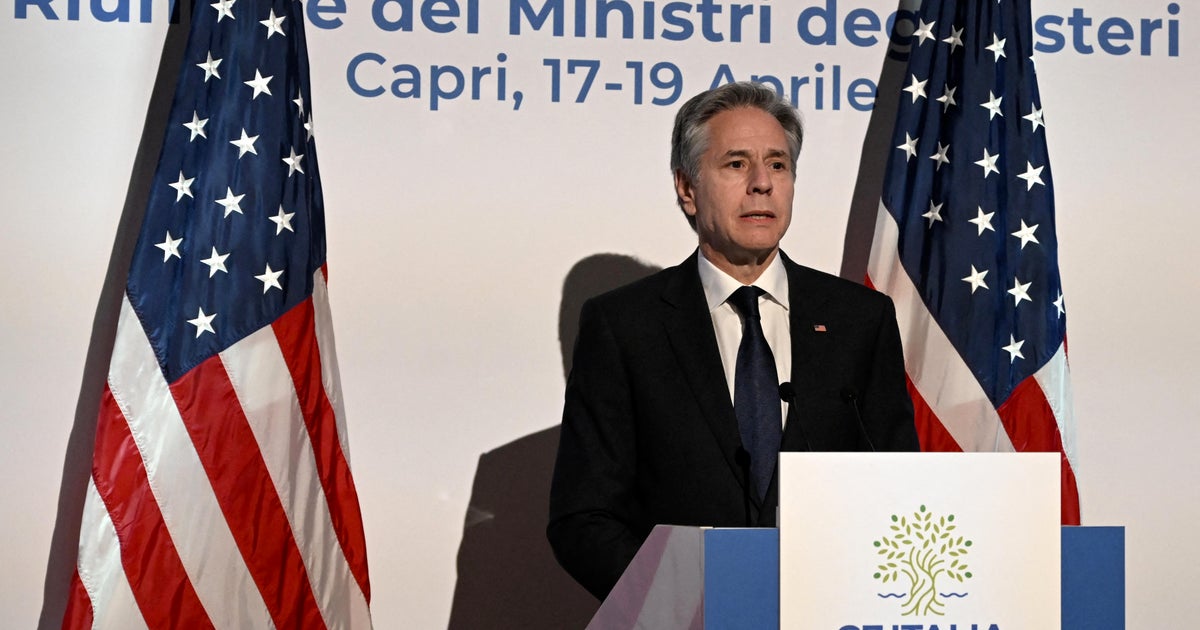Terror threat is "getting worse" says former homeland security adviser
Conditions that allowed foreign terrorist organizations like ISIS and al-Qaeda to seed and grow their ideologies persist across the Middle East, according to former White House counterterrorism chief Lisa Monaco. And although the U.S. has made meaningful strides in preventing attacks on its soil that originate overseas, Monaco warned that the risks of radicalization for potential domestic terrorists may be increasing.
"The good news is that the threat as we saw it, post-9/11, of command-and-control, complex, foreign directed attacks is greatly diminished," said Monaco, who served from 2013 to 2017 as homeland security and counterterrorism adviser to President Barack Obama. She credited the work of multiple administrations over the past 17 years with preventing elaborate attacks and, more recently, in rolling back the territory once occupied by ISIS.
"The bad news is that the conditions that made it possible for al-Qaeda to take root, that made it possible for ISIS to expand and occupy the territory to recruit and radicalize – all of those things still exist in the Middle East, in other regions," Monaco said. "And those things are not going away."
There were more than 8,500 terrorist attacks worldwide in 2017, according to a State Department report, though the total declined 23 percent from the previous year. The report also found that terror threats had grown more complex as ISIS lost territory and sought to inspire simpler but still deadly attacks on Western targets.
In an interview with Intelligence Matters host and CBS News senior national security contributor Michael Morell, Monaco said the U.S. government today is "not equipped" and inadequately focused on domestic terrorist issues in particular, and that the risks of radicalization outside of jihadist violence remained pervasive.
"Here at home the sources, our political divisions, the ability for individuals to radicalize online, whether it's ISIS-inspired, whether it's far right ideology, whether it's far left ideology – all of those conditions also still exist, and I think also are getting worse," Monaco said.
She criticized the Trump administration's decision to revise the role she once held from one who reports directly to the president to one with less visibility, access and power. Rear Adm. Douglas Fears assumed the role of homeland security adviser at a rank of deputy assistant to President Trump after his predecessor, Tom Bossert, was ousted last April.
Presidents "from George W. Bush through Barack Obama knew what we needed, and they needed one person who woke up every day focused 24/7 on this issue," Monaco said. "That role has unfortunately been downgraded. And I think that's a problem because I know I was pretty busy, as were my predecessors."
A White House official told CBS News the National Security Council staff structure under the Obama administration was "duplicative, bloated and overlapping," and said National Security Adviser Amb. John Bolton streamlined its staffing structure to "efficiently keep America safe."
In November, after a spate of domestic terror attacks and mail bomb assassination attempts gripped communities across the U.S., Monaco co-wrote an op-ed calling for the homeland security adviser position to be restored to its previous stature and for more robust funding of programs focused on domestic radicalization.
She told Morell the counterterrorism strategy produced by the Trump administration in October included "a lot of continuity" in themes from previous administrations, but that there had been a "real mismatch" between the strategy itself and rhetoric and actions taken by the White House.
The president's decision to issue a travel ban on individuals from Muslim-majority countries, she said, ran counter to some of the strategy's core tenets.
"Al-Qaeda, ISIS, others recruit based on the theory that there's a clash of civilizations, that the West and America in particular is aligned against all of Islam," Monaco said. "We feed that narrative when we do things like the travel ban, when we criticize our NATO allies, and when we talk about retreat from multilateral organizations and agreements," she told Morell.
"All of that," she continued, "isolates us from our partnerships that are so, so critical to being able to take the fight to the terrorists abroad before they come here, and to work with communities here who are so vital to our being able to defend against inspired attacks here at home."
For much more from Michael Morell's conversation with Lisa Monaco, you can listen to the new episode and subscribe to Intelligence Matters here.



